U/B 32: So this is Wintering
Protecting vs exposing our wounds
Hi there! Weird things first… I found another diamond ring in the dirt, this time on the side of a bridge. It’s not a finger ring, it’s an earring, but still. Plus, it looks remarkably similar to the wedding ring I found a few years ago.
What are the odds? I don’t know, but I will say that I found it because I was looking at the ground, scanning for patterns like I always do when I’m walking outside. Be it 4-leaf clovers or sparkling jewelry, I tend to find treasures when I look for them.
What might the universe be trying to tell me?
Keep looking. Keep looking for what I want to find. But also don’t limit myself to what I know to look for. Watch for patterns. What has a bit of sparkle or delicate curve, a hint at something valuable, worth taking a closer look?
Enjoy the looking. Because there will not always be a treasure at the end.
Wintering
Last August I claimed my energy was shifting. I genuinely wanted that to be true but I was fooling myself. The seasons outside may have been changing, but my body was not yet ready. For all my mind’s intentions and conscious thinking, sometimes the body must go at its own pace.
I’m learning that I have been “wintering”, a term recently popularized by
’s book, Wintering: The power of rest and retreat in difficult times.1May describes wintering as those low and slow periods of life, when, for reasons like illness, death, job loss, new baby, burnout, breakups, etc, we can no longer keep up with the hustle and bustle of modern life and so we retreat, we hunker down.
Wintering is not always about the cold, though there’s quite a bit in the book about the healing powers of cold, like icing an injury or taking a cold-water plunge. What I’m most drawn to is the scarcity aspect of winter. Not that there is cold but that there is not warmth. There’s less sun, less food. Winter is a time to conserve. Which often means not sharing.
Today, I want to write about not sharing our stories, why people keep to themselves during these times, and why May’s book was such a balm to my weary soul.
We are ashamed of anything less than hard work
The metaphorical wintering that May describes is isolating, lonely. Especially in cultures like mine and May’s where the first rule of wintering seems to be don’t talk about wintering. May writes:
The times when we fall out of sync with everyday life remain taboo. We’re not raised to recognise wintering or to acknowledge its inevitability. Instead, we tend to see it as a humiliation, something that should be hidden from view lest we shock the world too greatly. We put on a brave public face and grieve privately; we pretend not to see other people’s pain. We treat each wintering as an embarrassing anomaly that should be hidden or ignored. This means we’ve made a secret of an entirely ordinary process and have thereby given those who endure it a pariah status, forcing them to drop out of everyday life in order to conceal their failure.
Humans want to know why things happen so that we may plan for the future (it’s the blessing and curse of our consciousness). Correlation doesn’t equal causation but we sure like to connect those dots. It’s even assumed that some hardships must be your fault. How many stories back up that harmful belief? In Aesop’s moralizing fable, the Grasshopper went hungry because he was lazy while the ants worked. Just this week, Meta is labeling employees as “low performers” to justify its layoffs2. Those stories instill fear. They say, shape up or else.
You may even have a legitimate excuse (death, cancer, natural disaster) which seems almost lucky. I’m down but it’s not my fault. How absurd is that?
Here’s a true story. I recently mentioned to a friend3 that I was secretly relieved to have gotten cancer because it meant I had an excuse to not hustle. He said that probably spoke to the state of my life before, which is true. I needed to slow down. But it also speaks to my belief that others would judge me.
Not long after that conversation, I read Wintering and felt particularly seen by this passage:
I am slyly pleased that I have pain to contend with, rather than a more nebulous sense of my own overwhelm. It feels more concrete somehow. I can hide behind it and say, See I am not unable to manage my workload. I am legitimately ill.
Excuses wouldn’t be necessary if there wasn’t such a strong need to attribute a cause or place blame. Maybe the Earth is orbiting the sun in such a way that makes the northern hemisphere cold for a few months. Maybe the human is orbiting a situation that requires quiet and solitude.
But humans aren’t supposed to have fallow periods, right? Like productivity bros on the internet say, Just commit and do the work! We must go go go, always producing. Burned out people keep burning — and developing unhealthy coping mechanisms — because anything less than maximum efficiency at work can get you shunned, if not laid off. Which I was. Which led to the period when I was glad to get cancer.
Nature shows that survival is a practice. Sometimes it flourishes — lays on fat, garlands itself in leaves, makes abundant honey — and sometimes it pares back to the very basics of existence in order to keep living. It doesn’t do this once, resentfully, assuming that one day it will get things right and everything will smooth out. It winters in cycles, again and again, forever and ever. - Katherine May
Exposed wounds are vulnerable
You know why else we don’t talk about this stuff? It’s painful and potentially harmful to our healing. We cover wounds — physical and psychological — to protect them from threats. We may not be totally silent during our periods of wintering, but we are cautious about when and where to share, lest we get burned, further damaging our vulnerable soft parts.
Last week while doing dishes, a white line in the back yard caught my eye. My baby Chinese pistache tree-stick was naked, its bark stripped by some animal (likely a deer) exposing it to the frigid January air. I cursed myself for not protecting it in the first place, then bundled up to go find a solution. An old tomato cage under the deck would have to do. Will the wound heal? I don’t know. At least I can try to give it a fighting chance to survive the dormant season without its winter coat.
We cover open wounds, leaving them alone so they may do the quiet, often invisible work of self-healing, turning wound to scar. I thought about this later that day when I peeled the last of the bandages off my skin. It had been a few weeks since my last reconstructive surgery (post breast cancer) and it was time. There is still some healing to do, but they are no longer raw.
Wounds heal, becoming scars
Scars are symbols of survival. A scar doesn’t say “I am damaged”. It says “I used to have a wound and now it is healed”.
Speak from your scars, not your wounds. - Anonymous
Just yesterday, someone shared the quote above on LinkedIn as inspiration of what to share or not in that social media environment. People like story arcs, not endless “going through” without a lesson or happy ever after. And when you’re on a platform like LinkedIn, you can’t show weakness. That’s not an absolute truth, but it seems pretty true. Needy is creepy.
As May explains:
While we may no longer see depression as a failure, we expect you to spin it into something meaningful pretty quick. And if you can’t pull that off, then you’d better disappear from view for a while. You’re dragging down the vibe.
Even now during this period of my wintering, I am seeking work and feel the need to hide my vulnerability, display only my capable side. I’m hesitant to even publish this lest I tell the wrong story. But I think it may resonate with you and others, so I’m willing to share if it helps someone else. Artist Annette Message once said, Being an artist means forever healing your own wounds and at the same time endlessly exposing them. And that’s what I’ve considered Useful / Beautiful to be for a while now. It’s more art than design, though I do keep you in mind as my guide when the writing gets too self-absorbed.
Thank you for reading. Your attention is a gift.
Love,
Kate
p.s. Like this letter? Help others get value from it, too. Please tap the heart and restack it.
p.p.s. Who do you know that might appreciate having a soft, deep-thinking writer and coach by their side? Would you send them a note or reply to me with your thoughts? Thank you.
New ritual
You know what’s really awesome when you’re wintering? Light and warmth. Fire has both. I’ve started a new ritual of lighting a beeswax pillar candle every morning. It adds an element (literally fire) of peace to my day and reminds me to be present.
Thank you if you’ve recently given me a beeswax candle.


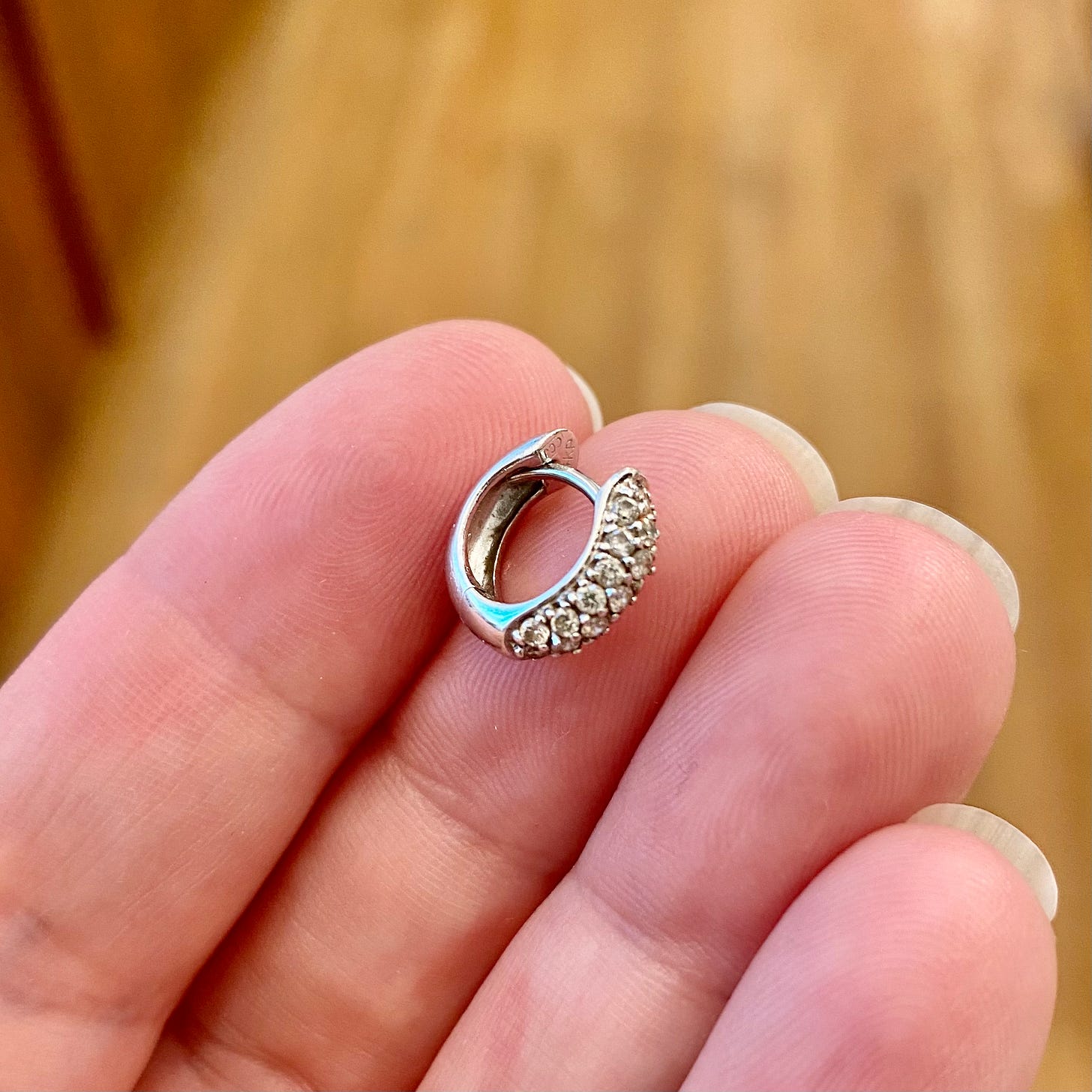
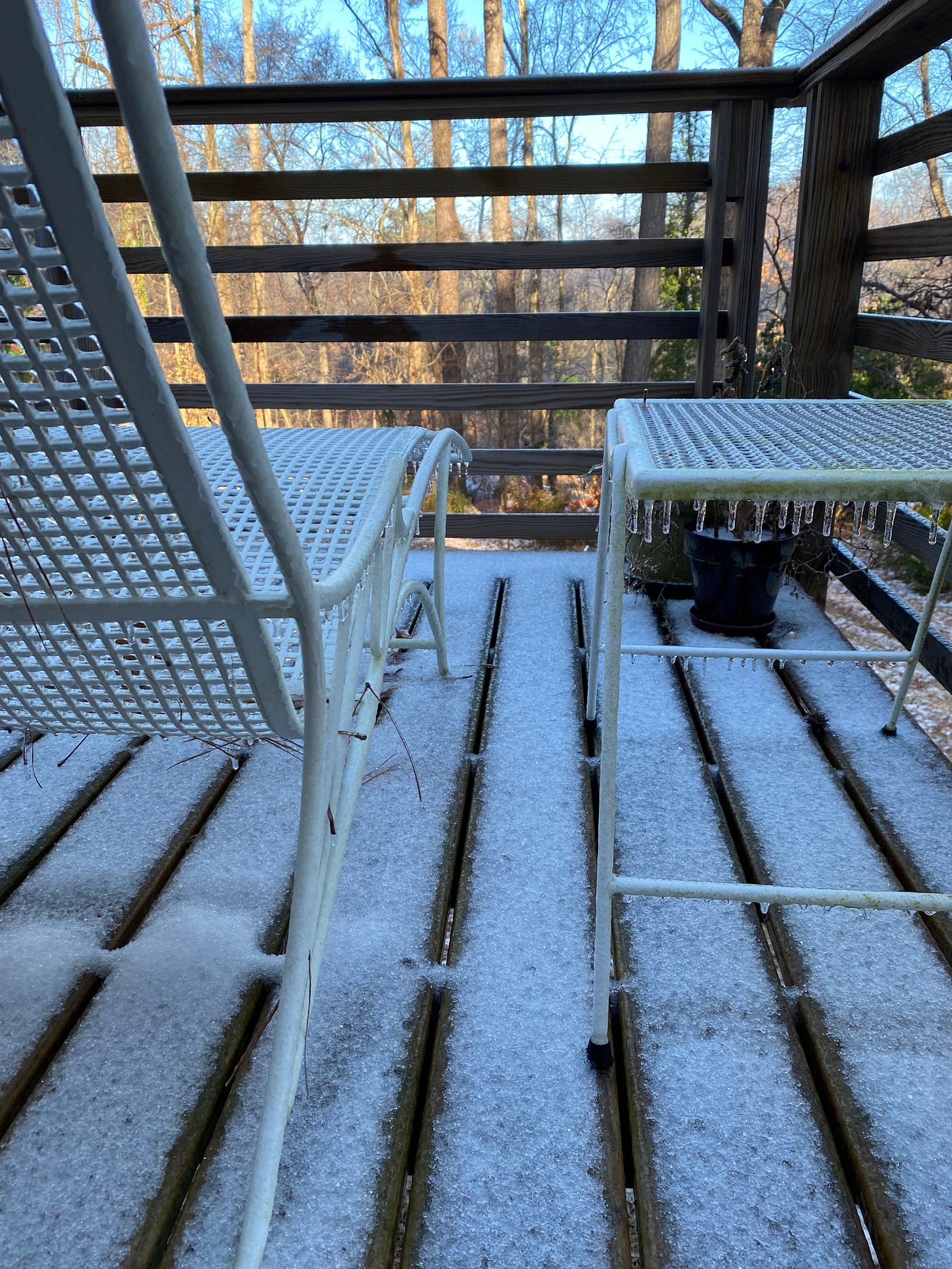

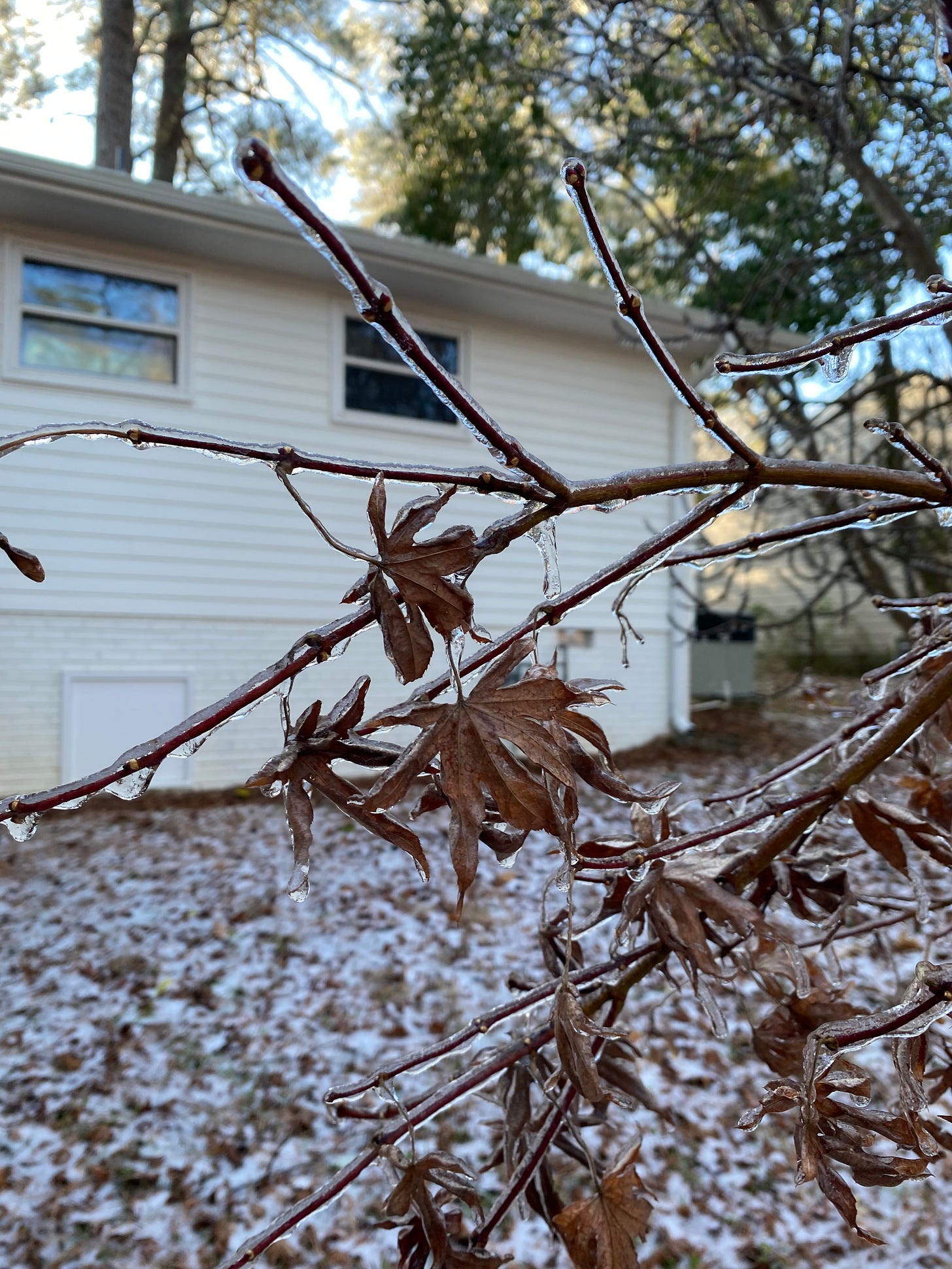
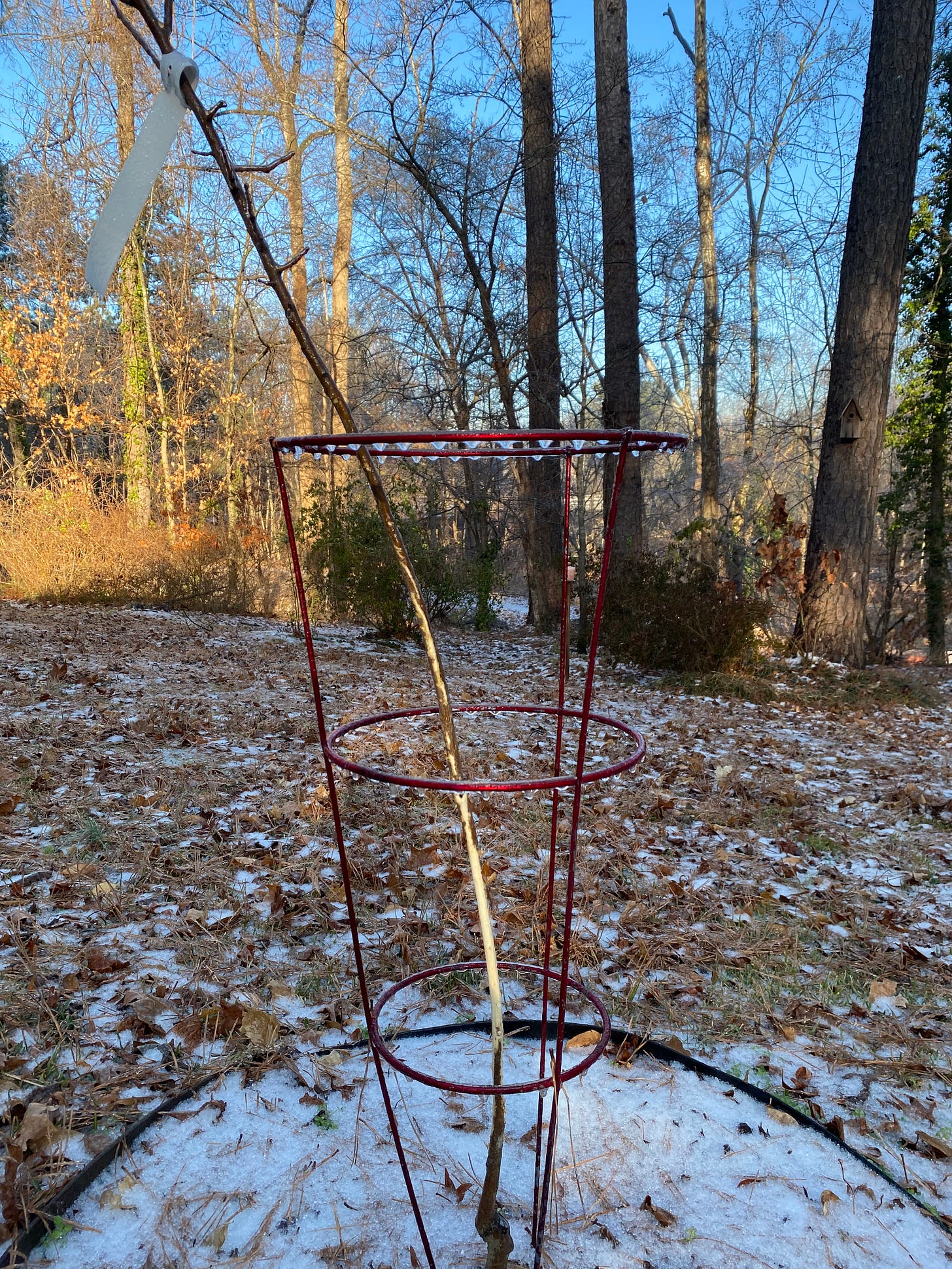
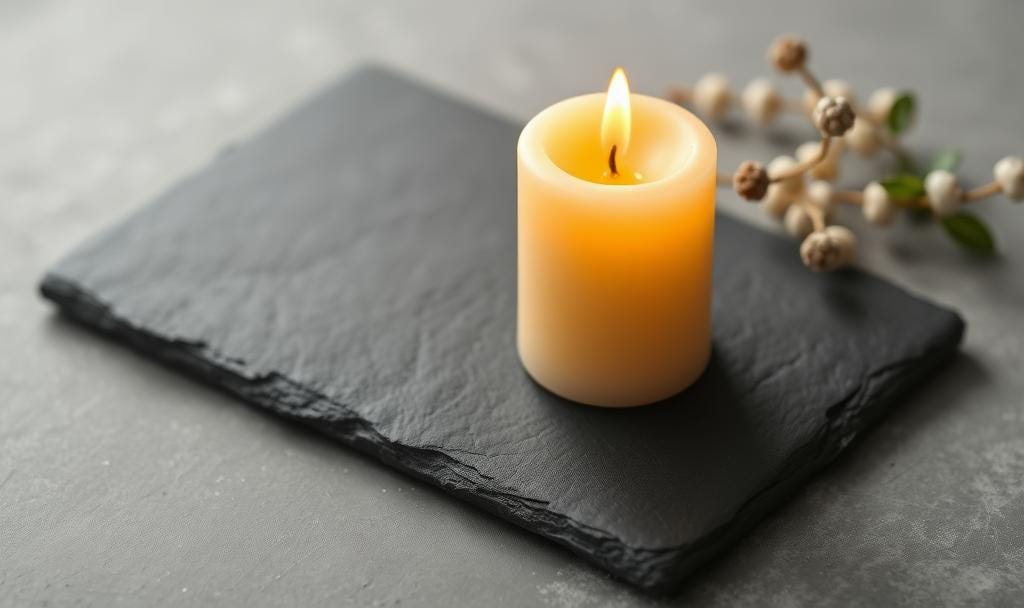
Thankful for this piece, Kate. I love the idea of and the book on Wintering. Having a seasonal occupation which gives so much added down time during winter is bittersweet. I appreciate the reminder that it's ok to move slow and be non or less productive during this important season of retreat. Also planning to light a candle in the morning.
Gorgeous writing of familiar territory. Thank you. Inspires me to write on a facet of this, so thank you for that too!